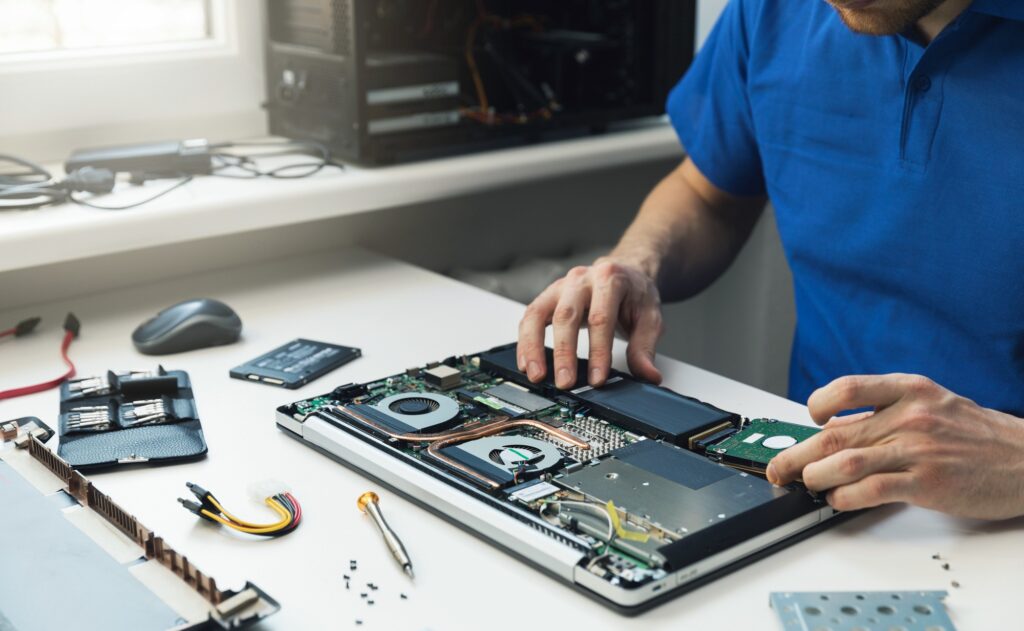Once did you receive your brand-new laptop, do you recall the day? Newer models are typically quicker. Laptop performance can be affected by some factors, such as memory constraints, programs that have been downloaded, and the involvement of malware. A sluggish laptop can make working on it difficult. Laptop performance can be affected by some factors, including memory constraints, programs that have been downloaded, and the presence of malware or viruses.
Over 80% of people use laptops for a variety of tasks worldwide. The majority of them roughly 50% of them—face laptop problems when working on something crucial and frequently become frustrated by the device’s sluggish performance. If your laptop has a ton of problems, then it would be best if you take the laptop to the laptop repairing shop.
Increase Local Disk C’s Free Space
The most important factor in increasing your PC’s speed is free space. Most often, slowdowns in computers are cause by a hard disc that is full of free space. Why do we require free disc space? To store virtual memory, hard drives essentially need space. By carrying out more tasks, the RAM becomes overloaded, and subsequent tasks are automatically used up by free space on hard drives (memory swapping), resulting in a lack of free space on the hard disc.
Remove Temporary Files to Boost Laptop performance
Your laptop will run faster if you delete temporary files or temp directories twice a week. While using apps for graphics, video, or media editing on PCs, temporary files are produced and stored. These files typically take up more room on your system.
Uninstall Any Unused Software
Many pre-installed applications that we never use at any time come with new PCs by default. In addition to taking up more space, these pre-installed apps impede laptop performance. It is, therefore, better to remove any unused or unwanted apps.
Defragment the System
In essence, the computer stores data in free hard disc space at random when saving files. This makes retrieving files challenging for the processor. We use the defragmentation process to resolve this problem. This procedure gathers all the scattered data pieces on your hard drive and reassembles them so that the processor can easily extract the data.
PC Malware Detection
Scan your computer whenever you install new software or insert a pen drive, hard drive, or another device to prevent viruses, spyware, adware, and other harmful programs that consume a lot of system resources (such as memory, hard drive, and processor)

Frequently Reboot or Restart Your Computer
Anytime you leave your desk, lock the computer and restart it once per day. By flushing RAM, stopping memory leaks, and fixing bugs, this procedure can increase your laptop performance. Restarting your computer will help it run more quickly if it becomes sluggish before continuing.
Reset your PC
By resetting your PC, you can alter your computer’s performance while keeping your PC’s speed. By restarting the laptop, unwant temporary files and invisible files are delete.
Turn Off the Startup Programs
Numerous programs on the computer can be set up so that they launch automatically when the CRM system or PC is turn on and continue to operate in the background. The experience can be significantly slow down if you don’t use those apps frequently or you don’t have a powerful device because they can waste important system resources.
Cleaning Hardware on Your Own
Service your laptop once every month with the help of a qualified individual. Or you can do it yourself by following online tutorials. You can Google the name of the laptop company. And the model number to find a service centre for your particular model.

You Should Cool Down More
Have you ever had a summertime incident where your laptop became uncomfortably hot and frequently made a jet engine sound? Sadly, this indicates that your laptop has exceeded the temperature at which it should not operate and is attempting to cool down by speeding up the fan and reducing the amount of heat that its processors produce by slackening performance. Many laptops have integrated cooling systems, like fans or heat sinks, that work to control temperature and keep internal parts from reaching their maximum temperatures.
You might not be able to utilize your processor’s capabilities to their fullest extent, even on some of the best laptops, due to weak cooling systems. Luckily, the market has some options for this, like an external cooling pad, for which it is worthwhile to spend a little more. To prevent the internal components of your laptops from overheating, you place this piece of equipment underneath it and blow cool air into it from the bottom. These, which cost as little as £10, work best with laptops that have airflow vents at the bottom of their chassis.
Increase RAM
Most of those adjustments we’ve already mentioned are hints and techniques for allocating more system memory for regular usage. Nevertheless, if your laptop is an older model with 2GB of memory or less, incorporating some extra capacity is a wonderful way to squeeze out some additional laptop performance. There are some clarifications provided for this, though.
Final Words
A laptop is necessary for our modern life because they perform a ton of functions and activities. And if you are having some issues with your laptops, then it would be wise to take your laptop to any nearby laptop repair store or centre.



